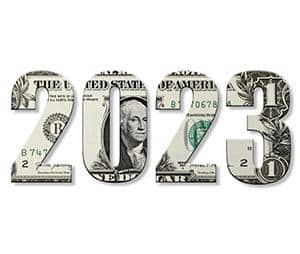
Christopher Kuehl
Managing Director • Armada
Separating the hype from reality is harder than it appears. When it comes to the economy it has been pointed out that perception often is reality. If people think a recession is coming they react in a way that makes sense for them but is actually counterproductive. They start reducing their spending and become more financial cautious. Business does the same thing – reducing inventory orders, reducing the labor force and generally preparing for the downturn they expect. This all but guarantees the arrival of that recession. The polls and surveys all suggest that many in the business community are now anticipating a recession in 2023 if not sooner. What makes this frustrating is that much of the data is saying just the opposite. It is not that signals of a slowdown are not present but many of these signals point to a milder version of that downturn.
The Purchasing Managers’ Index has dropped again – to 53.0. This is certainly not the direction that anybody wants to see but the readings remain in positive territory (at least for now). The levels of capacity utilization are very close to what is considered ideal territory (between 80.0% and 85.0%). The latest edition of Armada’s Strategic Intelligence System shows only a slight decline from a peak set a few months ago. These are certainly not numbers that suggest a boom but neither are thet showing a collapse. The fundamental question is where will these numbers be in a month or a quarter.
There are any number of factors to consider and indicators to watch. At the top of the list of factors triggering the current surge in inflation would be the ongoing energy crisis and the continued supply chain mess. These have both played dominant roles as far as triggering inflation. Both could last for months and even years or they could be corrected in a matter of weeks – it is just that nobody has a sense of what will happen. Assuming that these issues are not resolved quickly what would a business watch to determine the potential for a real recession in 2023?
The first issue is interest rates. Will the Fed (and other central banks around the world) keep hiking rates to contend with inflation even as they note that most of the cause of these price hikes have little to do with monetary policy? If rates stay somewhere around 2.5% to 3.5% by year’s end the damage to the economy will be reduced. The second issue is consumer confidence. These surveys are notoriously unreliable but they do reflect the immediate mood of the consumer. If the stress of inflation leads people to start worrying about recession enough to curtail their spending the downturn stands to worsen. At the moment the consumer is at the “complain but keep spending” stage as retail numbers are still up and even summer travel has not been affected dramatically. The third issue is employment. Price hikes will worry the consumer but job losses will cause panic. The rate of unemployment has remained very low and there have been no signs yet of mass layoffs. This may be the only silver lining to the chronic labor shortage – business is very reluctant to fire anybody as they have no idea whjere they would find replacement workers when they needed them. Given the record number of quits that have been recorded by the JOLTS report (Job Opportunity and Labor Turnover Survey) there is still considerable optimism within the workforce – people are of the opinion they can easily find a new job at any time they desire. If there is a sharper hike in rates than anticipated, if consumer confidence crashes at the same time that retail spending fades and people start to worry about job security the ingredients for a recession are present.
Recent Posts
- Stability in Uncertain Times: Insights on Small Business Performance and Market Trends March 26, 2025
- Economic Reconnaissance | Now Comes the Hard Part February 3, 2025
- How Can the CMI be Used for Performance Insights? January 6, 2025
- Economic Reconnaissance | Economic Growth During the Next Presidency December 3, 2024
- How Credit Managers Can Step into Executive Leadership November 13, 2024
- New California law extends consumer debt protections to small businesses October 15, 2024









